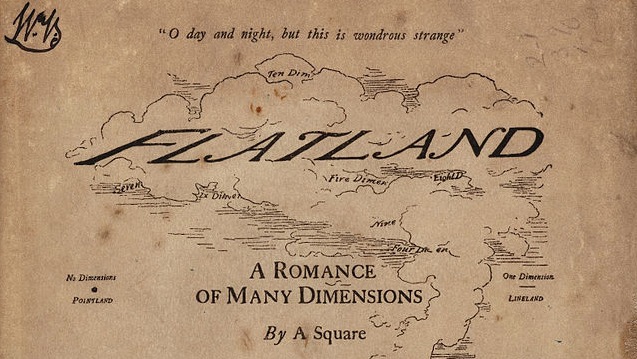The Muslim experience in post-9/11 America is alive with a burgeoning literary-arts movement. Muslim storytellers are increasingly invested in “humanizing” their experiences. Initiatives like The Hijabi Monologues, The Muslim Protagonist, Muslim Writers Collective, and others are dedicated to this project. Hashtags like #MuslimLivesMatter and #WeNeedDiverseBooks are ubiquitous. Calls to fight power with words, to write our own stories and be our own protagonists, are met with retweets, likes, shares, snaps, and applause.
The skeptic in me is not comfortable with the ease with which buzzphrases akin to “speak truth to power” or “represent the unrepresented” stir crowds on and offline. I appreciate these conversations and have been an instigator of them, but as Muslims in America our dialogues and stories embody more than only their social and political relevance. Many stories (at least the way we talk about them) feel rooted in “Muslimness” by identity, not faith. We must close this divide. Faith is talked about, but it does not feel integral to this project to humanize our experiences. If it plays a part, faith rationalizes social and political ends: “Islam favors justice and condemns prejudice,” we might say, “so we will pursue these through the power of story.” But, while Islam and its call for justice are influenced by society and politics, they are also rooted in the soul. Faith may occupy the subject of our stories and the identities of their protagonists, but we should do more to recognize that it ought to also—to at least—constitute their substance.
What these Muslim storytellers and their initiatives are pursuing, really, is change. And before it manifests in our society or politics, change begins in the heart. This is relevant to storytellers from all backgrounds but is particularly fundamental, for me, to an Islamic way of experiencing and acting in the world.
Experiences are inadequately expressed in words. The struggle of identities, borders, and post 9/11 existence is a confrontation with dispossession and belonging, a brawl with history, and an experiment in social imagination. These are things that cannot be described. The metaphorical power of story is about accessing truths beyond the modern confines of empirical thinking, truths drawn from the inarticulable unknowables—elements of the divine—that weave through our stories.
In premodern Muslim traditions, jurists did not dedicate their efforts solely to legal treatises. Most were Sufi poets and storytellers. Narrative was a means of accessing higher, internal truths beyond empiricism; metaphors expressed what could not be directly said in words. Accessing a deep internal state (what Al-Ghazali called dhawq, “fruitional experience”) was a means of achieving agency by rejecting external influence. This is what we do when we pray—attempt to achieve a proximity to the divine. Al-Ghazali’s The Niche of Lights is named after Qur’an 24:35, which ends: “God propounds parables unto men, since God [alone] has full knowledge of all things.” Amthal (translated as “parables,” “similitudes,” “metaphors”) were an essential means of communicating what could not communicated, of speaking beyond words. Al-Ghazali himself was known for the creativity of his figurative language, as were many jurists and theologians who told stories, like Attar (Conference of the Birds) or Ibn Tufayl (Hayy ibn Yaqdhan). The act of storytelling and its creative forms—amthal—was critical to fostering deep spiritual experiences for audiences. In receiving the experience of story, audiences were in turn able to reach a proximity to God, to divine will, and hence to their own moral agency. Stories worked alongside law and its pursuit of justice, allowing jurists to embody the spirit of the law beyond a textual understanding.
Moral storytelling is not about obeying a set of MPAA-like rules on portrayals of violence, promiscuity, and so on, or about authentic depictions of protagonists and communities, although these are considerations. More deeply, they are about the place from which the story arises in the writer and arrives in the reader: the heart.
At the third annual Muslim Protagonist Symposium, Art as Protest, an audience member asked why there is a fear today of stories that speak their minds. A film like Avatar, for example, would not be as popular if set in the Middle East, its metaphor stripped away and anti-imperialist themes made explicit. Sohail Daulatzai, Associate Professor of Film and Media Studies at UC Irvine, responded by agreeing that in art, truth should directly confront power, citing N.W.A.’s “F— tha police.”
The question and its answer dodge the deeper value of “F— tha police.” To reduce that line to a political calling card is to deprive it of its gravity. “F— tha police” is not just a buzzphrase or a fist in the air. Its bluntness, in a way beyond intellectual grasp, communicates the pain, subjugation, and resilience that ring true to the experience of a black man in America. It’s a political statement and also so much more. The deeper truth is not direct.
I am not advocating for stories about faith, but for stories informed by our varied religious experiences regardless of subject. This gives us substance, not surface. Ursula K. Le Guin famously wrote on the power of stories to relate the unknowable quality of experience. In an almost Sufi turn of phrase, she declared: “I talk about the gods; I am an atheist. But I am an artist too, and therefore a liar. Distrust everything I say. I am telling the truth.” I would like to see us turn this on its head.
Perhaps we as Muslims in America already recognize the importance of faith in the making of narratives. But these spiritual underpinnings feel absent from the conversations I have heard and read. Ironically, to talk about this devalues the issue, for it is inarticulable. But I think we should try.
***
This piece is drawn in part from my paper in the University of Toronto Undergraduate Journal of Middle East Studies, “Literature and Agency in Islamic Discourse.”
[separator type=”thin”]
Haris A. Durrani (@hdernity) is Co-Founder of The Muslim Protagonist Symposium at Columbia University, where he is an Egleston Scholar. His published fiction, memoirs, and essays explore personal narratives arising at the nexus of law, technology, and disenfranchised identities, particularly in Latino and post-9/11 contexts. He is an Applied Physics Major at Columbia’s School of Engineering and Applied Science and a Middle Eastern, South Asian, and African Studies Minor.





4 Comments